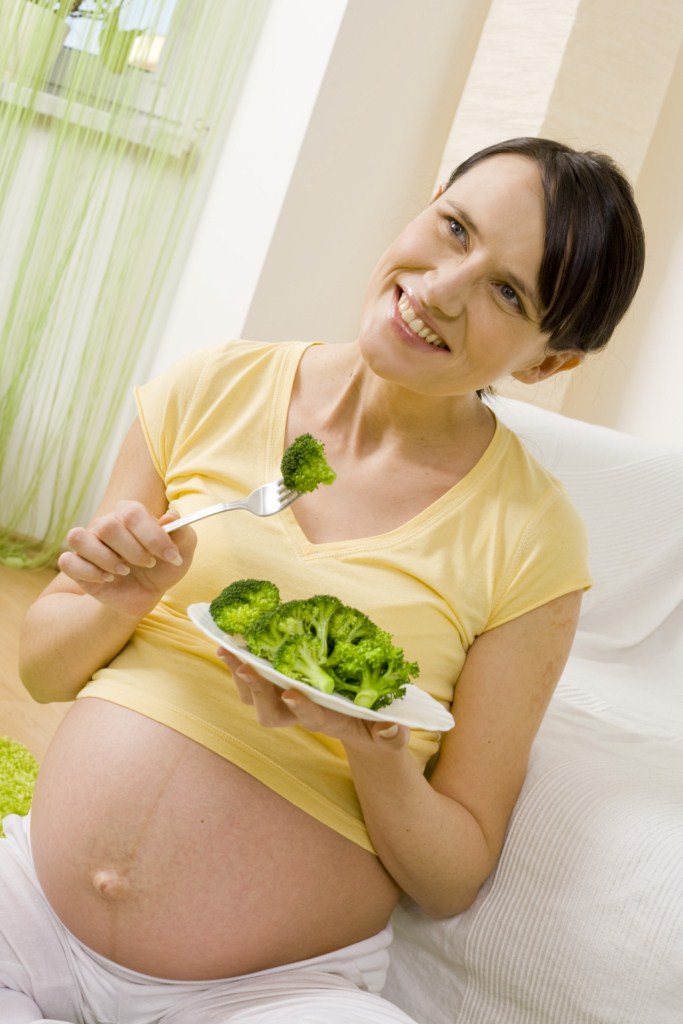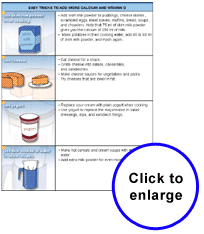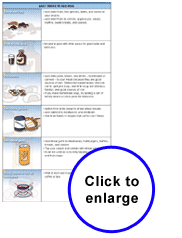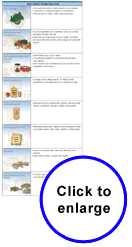b. Important Vitamins and Minerals
Calcium, Vitamin D, Folic Acid, and Iron are very important for your baby's growth and development. You will need more of these elements than usual during pregnancy. The best way to be sure you are getting enough is to eat a variety of foods every day and follow Canada's Food Guide eat well plate.

1. Calcium and Vitamin D
Calcium and Vitamin D are essential to help your baby build strong bones and teeth.
The following table contains easy tricks to add more Calcium and Vitamin D to your diet.
Drinking at least two cups of milk every day will help you get more Vitamin D. Other milk products like cheese aren't enriched with Vitamin D, but some yogurts are.

2. Iron
Iron is necessary to build red blood cells. During pregnancy you need more iron to allow your baby to develop good reserves of iron which will last him or her for the first four to six months of life.
The following table contains easy tricks to add more Iron to your diet.
Vitamin C helps your body to use the iron in vegetables, fruits, grain products, and legumes. Eat foods rich in Vitamin C at the same time as iron-rich foods.
The main sources of Vitamin C are:
- oranges, grapefruits and their juices
- tomatoes and tomato juice
- cabbage, cauliflower, and broccoli.

3. Folic Acid
Taking folic acid at least 3 months before you get pregnant and for the entire pregnancy will help prevent neural tube defects such as spina bifida. Your body does not store folic acid so you need to be sure to get enough every day.
It is recommended that all women of childbearing age, (that is from the start of menstruation to the end of menopause):
- eat foods which are good sources of folic acid every day (asparagus, broccoli...).
- take a multi-vitamin containing 0.4mg of folic acid every day (supplements containing more than 1 mg folic acid are not recommended)
The following table features easy tricks to add more folic acid to your food.
Folic acid is destroyed by heat, air, and water. Be sure to keep fruits and vegetables refrigerated. Eat raw fruits and vegetables whenever you can. When you cook fruits and vegetables, use as little water as possible. Try steaming your vegetables instead of boiling them.



